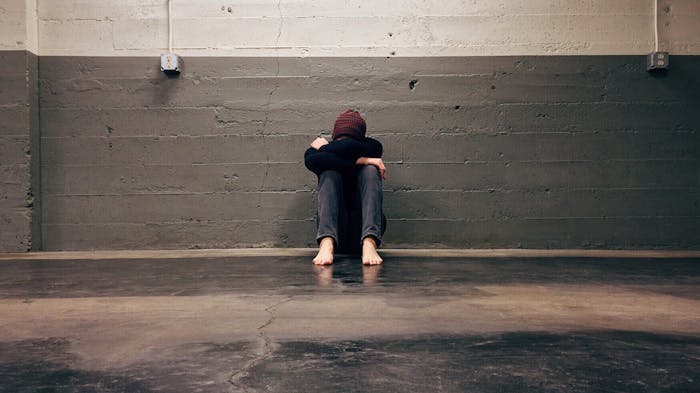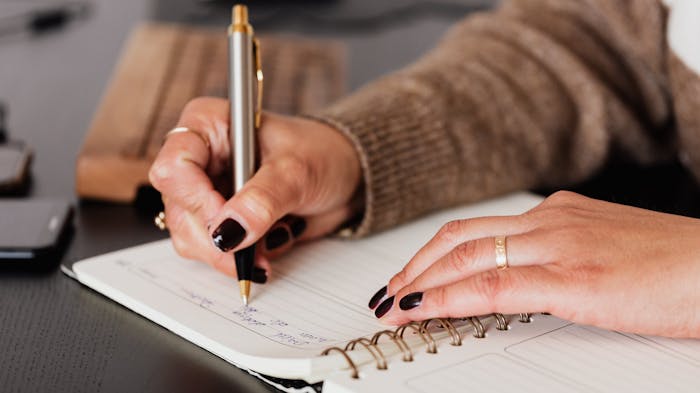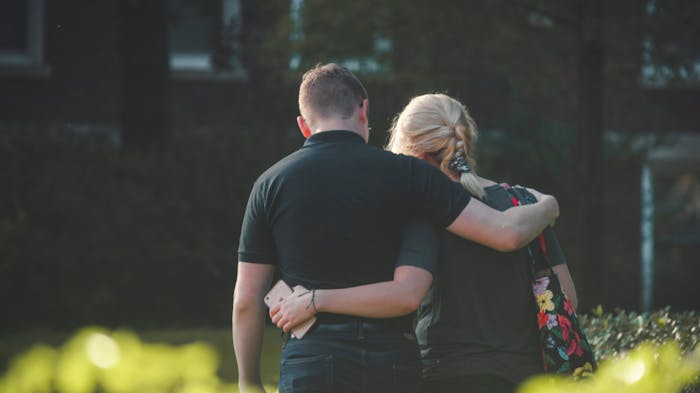George Gilbey’s mother has broken her silence over the tragic death of her son after it emerged he died from a fall at a warehouse in Essex earlier this week (Wednesday 27th). [1]
Linda McGarry spoke of the messages of support she had received following her son’s death, as she tried to come to terms with his sudden death.
Gilbey was known to many as a Celebrity Big Brother finalist in 2014 and a Gogglebox star alongside his mother and father. His tragic death came as a shock to his fans.
A man in his 40s has been arrested on suspicion of gross negligence manslaughter.
With Gibley’s death in the news and the message from his mother, as she processes her sudden loss, it opens up how we cope with grief after losing a loved one.
When it comes to dealing with grief, there is no ‘right’ way to cope. This guide will follow some of the ways you can support yourself on your journey of coming to terms with the loss of a loved one.

Grief is a strong emotion felt following the death of a loved one or someone close to you. Whilst it is an inevitable part of life, dealing with losing someone important to you can be one of the most painful periods of your life.
The death of a loved one can feel incredibly overwhelming, whether it’s a partner, parent, child, or close friend. As a result, you may experience waves of intense emotions, from emptiness, profound sadness and despair, to guilt, regret and shock.
You might struggle with knowing how to recover from this loss.
Grief can also trigger physical reactions as well. You might also go through weight changes, difficulty sleeping and a weakened immune system that results in illness and health problems, further reducing a healthy lifestyle. [2]
Experiencing grief is also connected to an increased risk of suicidal thoughts. [3] You are not alone and there is help to support you.
If you or someone you know is experiencing crisis and considering suicide or self-harm, support is available right now:
Call Samaritans 24/7 on 116 123 or text SHOUT to 85258 for immediate help.

No matter your relationship to the person who died, it’s important to remember there is no single way to cope with your grief and you should not compare yourself to others who may be grieving.
You should also not feel rushed to ‘get over’ your loss. Grieving takes time. For some, this could be weeks or months, for others it could be years.
The mourning process can be incredibly uncomfortable and open many unwanted feelings and emotions. An initial reaction is to try to ignore these emotions, however this may make things more difficult in the long run.
Try to actively face the pain and work through how you’re feeling.
Accept the feelings you’re experiencing and don’t think you should be feeling a particular way. Grief is experienced differently in people.
Whilst some may find themselves moving through grief in stages, others may find it a rollercoaster of emotions that comes in waves.
You should also prepare for painful reminders of your loved one. This could be hearing a song, seeing a photo or remembering a memory on a particular date.
You can’t prepare for all triggers, but you can reach out for support to loved ones before a holiday or anniversary that may reignite feelings.

After suddenly losing someone important to you, you may feel like you want to be alone. But it is the best time to surround yourself with people who care about you and can provide some comfort.
Lean on family and friends during this time and talk to them if you feel this would be helpful.
If you think family and friends might not be able to give you all the support you need at this time, you could also join a bereavement group. Sharing your feelings with those who understand what you’re going through can be incredibly helpful.
You can also gain coping tips through listening to them and their personal stories.
If you’re struggling to come to terms with your loss, or you’re feeling overwhelmed, try speaking to a bereavement counsellor who can work through your complex emotions and help you to adapt to your loss.
It can be easy to neglect self-care during the grieving process. But, in doing so, the stress and trauma you’re experiencing can impact your immune system and take a toll on your mental and physical well-being.
During this time it is important to manage your stress levels. You may not feel like it, but exercising can be a great way to combat stress and improve your sleep. Deep breathing, yoga or meditation is also a brilliant way to effectively ease worry. [4]
Spending time immersed in nature is another excellent technique to calm your mind during the grieving process. Activities outside could include hiking, gardening or going for a walk in your local park.
Eating a healthy, balanced diet with mood-boosting ingredients and getting enough sleep (7-9 hours each night) is crucial to easing your mind and coping with grief. [5]
Poor diet and a lack of sleep can have a huge impact on your mental well-being and can result in increased anxiety and depression. [6]
Whilst it’s tempting to self-medicate the pain you’re feeling with alcohol and drugs, using substances will only impede your chances of recovering from grief in the long run. [7]
Call Rehab 4 Addiction today if you’re experiencing issues with drug or alcohol addiction.
[1] https://www.mirror.co.uk/3am/celebrity-news/george-gilbeys-cause-death-gogglebox-32456877
[2] https://www.ncbi.nlm.nih.gov/pmc/articles/PMC6844541/
[3] https://www.ncbi.nlm.nih.gov/pmc/articles/PMC6562884/
[4] https://www.sciencedirect.com/science/article/abs/pii/S0889159112004758 meditation
[5] https://www.ncbi.nlm.nih.gov/pubmed/30238628